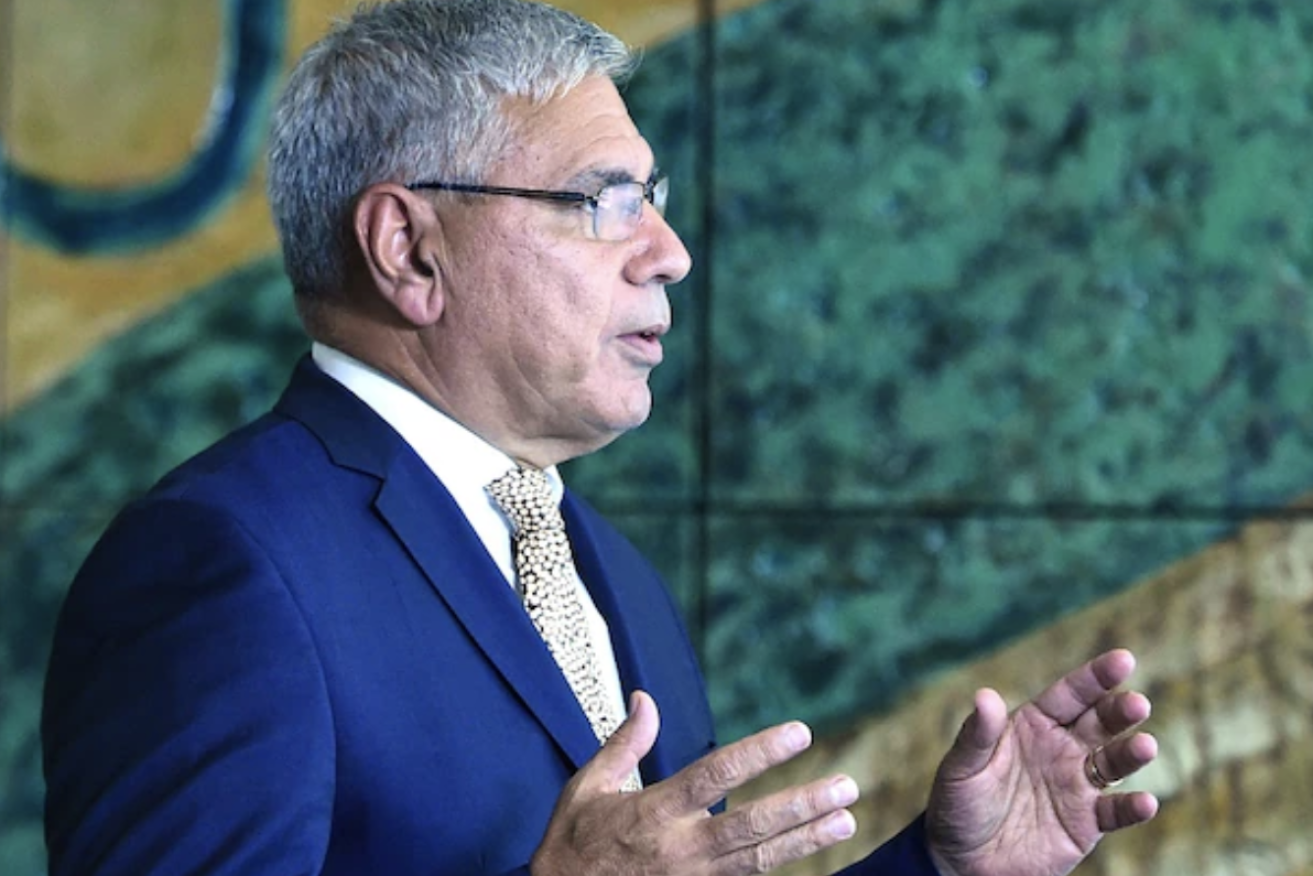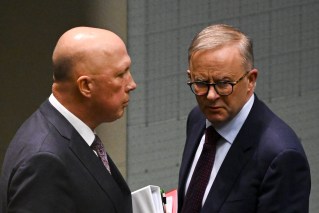Voice opponents say migrants should be recognised alongside First Nations people
Leading advocates against an Indigenous voice to parliament have called for constitutional recognition of migrants to Australia alongside Aboriginal and Torres Strait Islanders.

Warren Mundine (AAP Photo).
As the group leading the “no” vote unveiled its campaign, Recognise A Better Way, organiser Warren Mundine said the group would advocate for broader recognition in the constitution for Indigenous people.
However, that recognition would not mean an enshrined Indigenous voice to parliament.
Mundine, a former Labor Party national president and Liberal candidate, said while Indigenous people should be recognised in the constitution, other groups of people should have the same opportunity.
“That’s not just minimising the Indigenous part, that will be a major part of that,” he told ABC Radio on Monday.
“It gives us a great opportunity to also recognise other groups of people who have come to this country and really helped us economically.”
Mundine said while Indigenous recognition was needed, an enshrined voice would not be part of that as it would not be able to solve issues affecting Indigenous communities.
“We’re looking at all the problems we’re having at the moment that can be sorted out from legislation and ministers getting out there and doing their job, without the need to be spending millions,” he said.
“If the voice gets up, then I’ll be working with it to make it successful because we can’t afford to not make it successful – but at the same time, I don’t believe it needs to be there.”
Uluru Statement signatory Thomas Mayor said the voice to parliament was recognised as the best way forward, following the work to draft the statement in 2017.
“What Aboriginal and Torres Strait Islander people have clearly said in the statement is that we see constitutional recognition through a voice to parliament,” he said.
“For the people to be recognised, it’s important to listen to us about how we seek to be recognised.”
Mayor said enshrining the voice would be tangible action that would improve Indigenous lives.
“Australians are tired of symbolism, just as Indigenous people are tired of symbolism – we want something very practical,” he said.
“In a democracy, a voice is a very practical thing, influence over the making of those policies and laws is a very practical thing.”
Prime Minister Anthony Albanese said the referendum on enshrining the voice to parliament in the constitution would take place this year.
The Liberals have yet to determine their formal party position on the voice, but the Nationals last year already indicated they would oppose the change.
The Greens are due to hold a party room meeting later this week where the party’s formal stance on the voice will be debated.
Greens senator Sarah Hanson-Young said she supported the voice but also wanted to see all elements of the Uluru Statement from the Heart implemented in full.
“I want to make sure we can bring as many supporters together as possible to ensure that we get that progress,” she told ABC Radio.
“If we didn’t get progress on all three (elements of the statement), it would be devastating. We need to make sure we have First Nations justice.”












